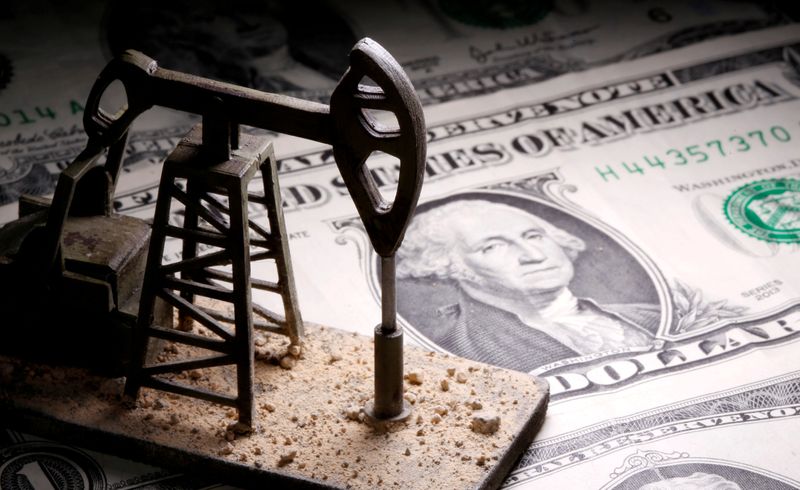COVID-19 variant.
Brent oil futures fell 0.54% to $106.44 by 12:52 AM ET (4:52 AM GMT) and crude oil WTI futures
Crude Oil WTI
102.48-2.31 (-2.20%)08:41:12 – Real-time derived data102.7804:0006:0008:00104.00103.00102.50103.50
Technical Summary5 Min:Strong SellHourly:Strong SellDaily:Strong SellMonthly:Strong BuyWhat is your sentiment on Crude Oil WTI? or declined 0.87% to $103.88. Both contracts posted weekly declines last week as the market was worried that more interest rate hikes would spark a recession and dent oil demand.
“Net long positions in WTI crude futures are now at their lowest level since March 2020, when demand collapsed amid the initial outbreak of COVID-19. This is despite ongoing signs of tightness,” ANZ Research analysts said in a note.
The number of COVID-19 cases for July 10 in China had climbed from the previous day, spurring concerns about potential lockdowns after Shanghai reported the first case of the highly infectious BA.5 omicron sub-variant on Sunday.
On the supply side, the market is still keeping an eye on Western sanctions to cap Russian oil prices, while Russian President Vladimir Putin warned that further sanctions could lead to “catastrophic” consequences in the global energy market.
The market is also watching the maintenance of the Nord Stream 1 pipeline, the biggest single pipeline carrying Russian gas to Germany, due to run from July 11 to 21. Markets are worried the shut-down would be extended over the war in Ukraine.
“The big problem for markets right now – forget COVID and Biden headlines – it’s going to be whether Nord Stream comes back on again,” SPI Asset Management managing partner Stephen Innes told Reuters.
There could be gas demand destruction in Europe if the pipeline does not come back on as scheduled on July 22, which could spur an economic slowdown and a weaker oil demand, Innes said.
“Until we get clear of that major risk event we’ll stay in this loop of good and bad in the oil market,” Innes added
